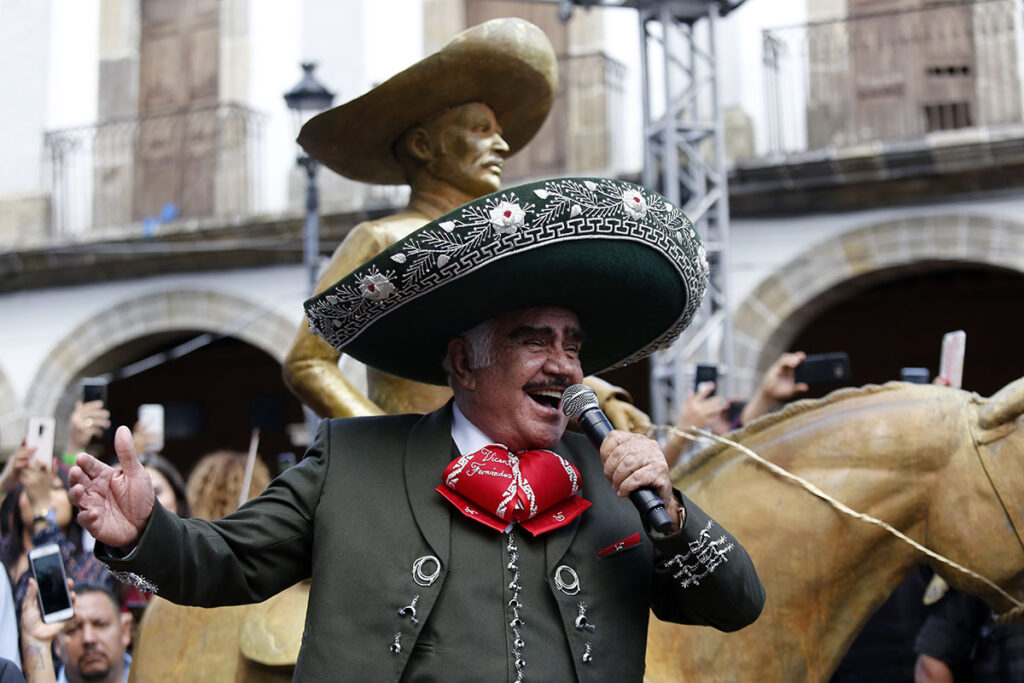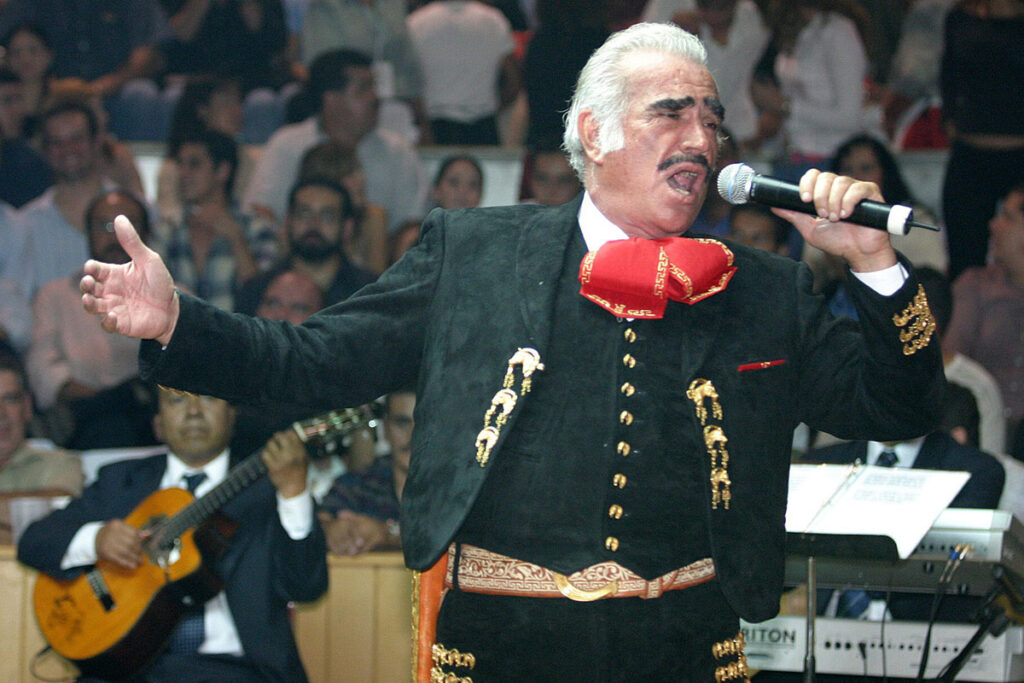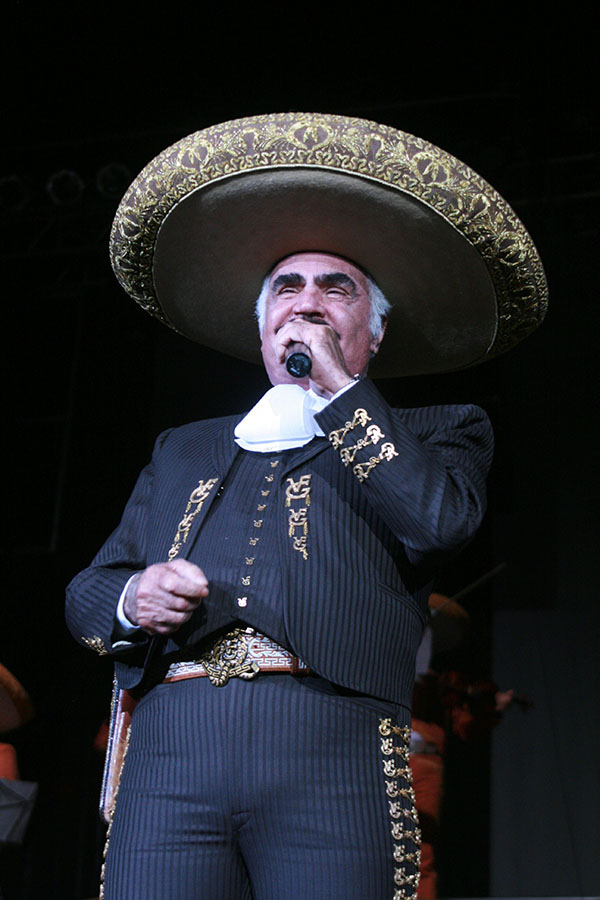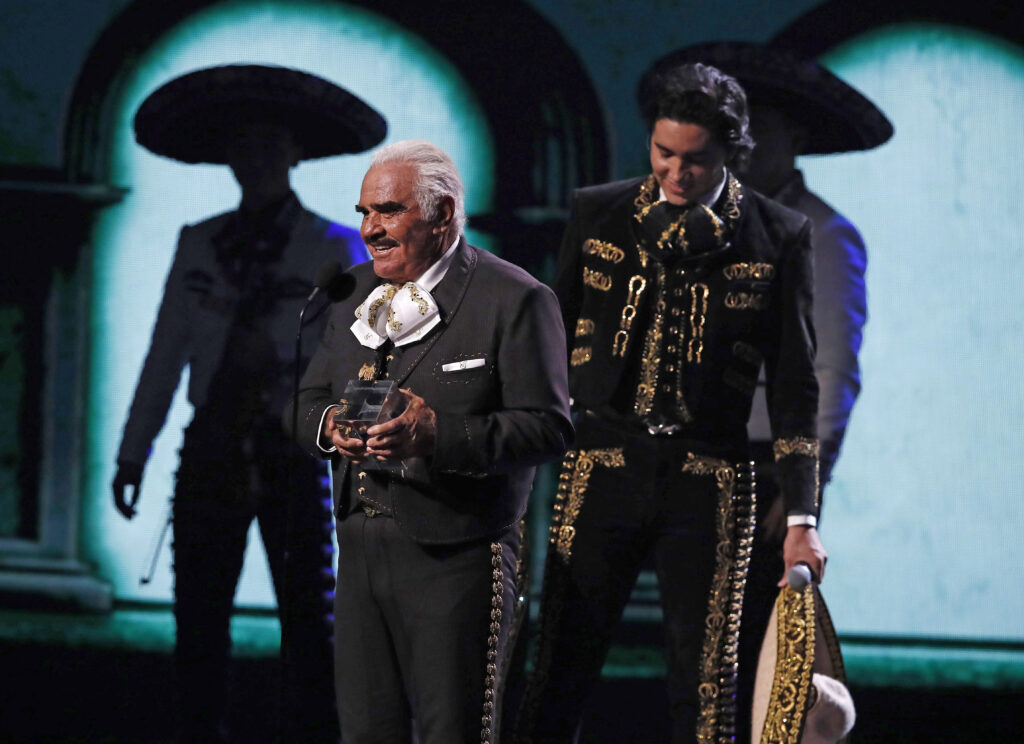Photos / EFE
Vicente Fernández Leaves an Emotional Legacy
Newsroom Tu CASA Magazine
Haga click aquí para leer la versión en español
With his characteristic wide hat and being surrounded by mariachi, Vicente Fernández performed on the most prestigious stages in the world showcasing the musical wealth of Mexico and awakening emotions with each concert.

As one of his most famous songs says, “Vicente Fernández is still the king.” Fernández always had unconditional affection from his audience marked by tight bonds, devotion, and mutual respect. “As long as you do not stop clapping, I will not stop singing” was this star’s most memorable phrase.”
Even though his performances could last up to three hours, he never avoided performances due to hoarseness or aphonia. After a tour of Central America, South America, Spain, the United States, and Mexico in February 2016, he announced his retirement. His reason for withdrawing was due to fear that one day he might disappoint his audience whom he respected so much. After his departure, he still continued recording.


Personal Life
Fernández was born in February 1940, and married María del Refugio Abarca Villaseñor in 1963, with whom he had three children, Vicente, Gerardo, and Alejandro, also known as the “three foals.” He also adopted a daughter named Alejandra. Between 1977 and 1987, he had an extramarital love affair with the Mexican actress Patricia Rivera, whom he met on the set of “El Arracadas.” Previously, Fernández believed himself to be the father of Pablo Rodrigo Fernández, however a paternity test yielded a negative result.
Two of his sons, Vicente Jr. and Alejandro, followed in his father’s musical footsteps. His son Alejandro reaches a large audience with his music. Even some of his grandchildren have followed as well, including Alex Fernández, who seeks to continue the mariachi dynasty, as well as Camila Fernández, who explores pop and r&b. In 1997, Vincente Fernández suffered greatly after the kidnapping of his son Vicente Fernández Jr. who also had his two fingers mutilated while in captivity.
Singing About Love and Spite
Beyond his songs and his films, Vicente Fernández’s legacy, which earned him the title, “The King of Ranchera Music”, lies in his contributions to the emotional influence upon the Mexican populace. “He has a legacy of emotional education which he achieves across several generations. His concerts were not just about the music and performance, but also about his lyrics which educated people profoundly. He is the heir of José Alfredo Jiménez,” assured the cinema critic, journalist, and teacher Gerardo Gil.
“Lástima que seas ajena,” “Volver, Volver,” “Hermoso cariño,” “Por tu maldito amor,” among many other songs, relayed how love, pain, regret, and spite are expressed in Mexico and Latin America.


Need for an Idol
El Charro de Huentitán has in his repertoire more than 100 musical albums, more than 300 recorded songs, and around 37 films of which he was the producer of at least 22. Whether the “Sinatra of ranchera” was a good actor or not is debatable. But one thing that is certain is that his work in cinema was an important part of his career and that his good performances led him to work with influential directors such as José Estrada, Alberto Mariscal, and Rafael Villaseñor Kuri.
“Vicente Fernández came at a time when the Mexican film and music industry needed icons,” says Gil, who expressed that Fernández is at the same height as other Mexican figures such as Pedro Infante, Jorge Negrete, and Javier Solís. According to the critic, Chente was “a breath of fresh air” in a cinema that was in decline after the rise of the Golden Age. “His characters had a common theme of coming from nowhere and achieving success while maintaining their simplicity and deep aspirations,” said Gil.



The Only Pattern
Gerardo cites the book “El tigre: Emilio Azcárraga y la de el empio de el Televisa” (2000) when mentioning the story of when Fernández rejected a job proposal from the most influential man in the Mexican media. “One day, Azcárraga Milmo invited him to do a telenovela. However, Fernández would only accept if he became the producer in joint venture with Televisa. Azcárraga replied ‘Televisa has no partners,’ to which Fernández responded ‘Vicente has no bosses, remember this.’
Although he did not make soap operas, Fernández was the voice of many theme songs with titles such as “Esos celos” and “Para siempre,” both written by Joan Sebastián. With the absence of Fernández, Mexican music has lost one of its most prominent figures. “His presence helped develop a contemporary music scene in an iconic and legendary way. He is still an important figure in the midst of other figures working today in the same genre,” Mercado concludes.




